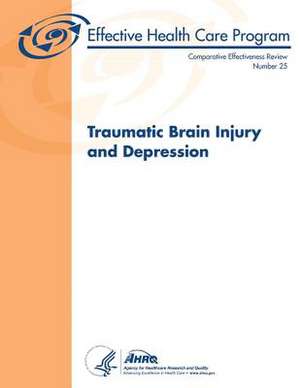Traumatic Brain Injury and Depression
Autor U. S. Department of Heal Human Services, Agency for Healthcare Resea And Qualityen Limba Engleză Paperback
Preț: 205.39 lei
Preț vechi: 216.20 lei
-5% Nou
Puncte Express: 308
Preț estimativ în valută:
39.31€ • 42.68$ • 33.02£
39.31€ • 42.68$ • 33.02£
Carte disponibilă
Livrare economică 02-16 aprilie
Preluare comenzi: 021 569.72.76
Specificații
ISBN-13: 9781484162392
ISBN-10: 1484162390
Pagini: 364
Dimensiuni: 216 x 280 x 19 mm
Greutate: 0.84 kg
Editura: CREATESPACE
ISBN-10: 1484162390
Pagini: 364
Dimensiuni: 216 x 280 x 19 mm
Greutate: 0.84 kg
Editura: CREATESPACE
